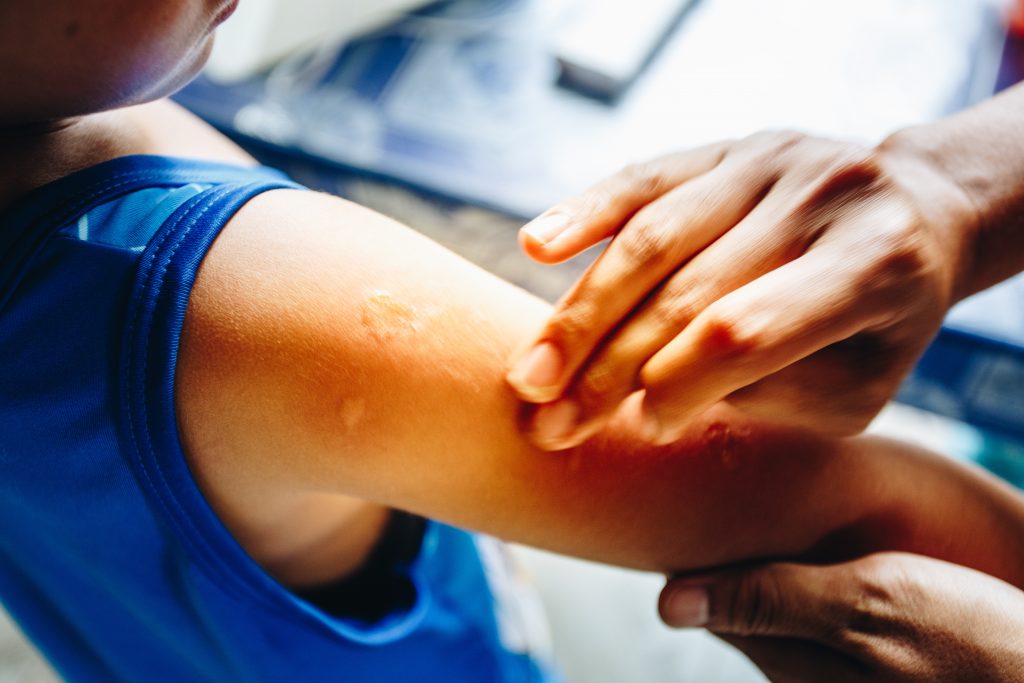- Sponsored Content

Although insect bites or stings can cause irritation, redness, pain or itch, most of the symptoms can be managed at home and they settle within a few hours or days. Most insect bites are not serious and usually resolve with no problems. Occasionally insect bites can cause infections, allergic reactions and transmit diseases. Insect bites or stings can cause a red bump, which may be painful or itchy. Some people have mild allergic reaction with larger red, raised areas.
Treating Insect Bites:
If there is a sting present, gently remove the sting and wash the area with soap and water.
Cold pack on the area for 10-15 minutes helps to reduce the mild reaction of red swelling of the bite or sting. It also helps to reduce any itch.
Antihistamines are helpful to reduce the itch and redness and also to settle mild allergic reaction.
Avoid scratching or aggravation to the bite so as to reduce risk of infection and further reaction.
When to Seek Medical Attention:
Get medical attention when the bite is not improving or has been worsening after a few days.
- Redness and swelling are worsening, and/or pus is present – this may be an indication of infection, whereby antibiotics may be needed
- More rashes are occurring, with worsening itch
- The bite causes severe swelling in the face, mouth or eyes
- There are signs of generalised infection, with fever, flu-like symptoms, or presence of swollen glands
- In the tropics, dengue fever is more prevalent with mosquito bites. Symptoms tend to appear a few days to a week after the mosquito bite if you are in an area with high incidence of dengue infection. Dengue fever causes intermittent high fever, tiredness, headaches, body and joint aches, rashes, and some may develop bleeding.
- Malaria tends to occur in some parts of Asia and this infection would require prompt treatment if you have travelled to areas with high risk of malaria.
- Zika virus infection is transmitted by mosquitoes. In areas of high transmission, anyone who develops symptoms of fever, conjunctivitis and rash during pregnancy should consult their obstetrician for evaluation.
When Does a Bite Become an Emergency?
The symptoms of severe allergic reaction may include:
- Shortness of breath
- Wheezing, hoarseness of voice
- Severe swelling of tongue, mouth, eyes, throat, face
- Choking sensation, tightness in chest or throat
- Dizziness, loss of consciousness, fast heart rate, nausea and vomiting
Seek immediate medical attention also if there has been previous severe allergic reaction to similar bites or stings. Individuals who had previous severe allergic reactions are usually prescribed medication to be used in these situations. Call 995 for ambulance when in Singapore, if there is severe allergic reaction to the bite or sting.
Preventing bites and stings is strongly advised, especially in places of high disease transmission (such as malaria, dengue, zika) and for individuals with severe allergic reaction.
Written by the team at International Medical Clinic.








